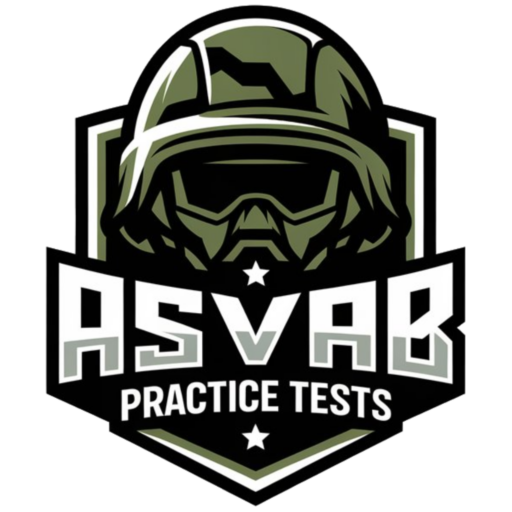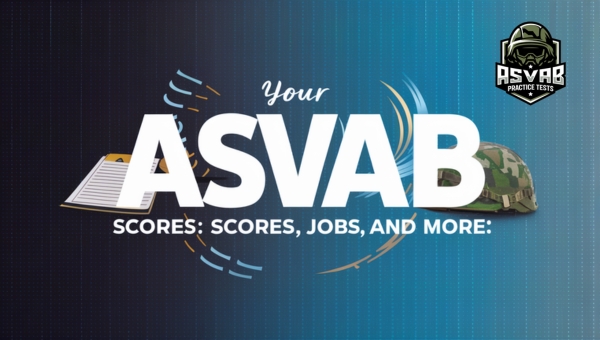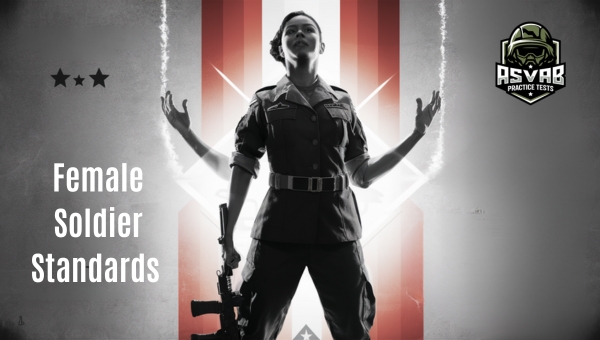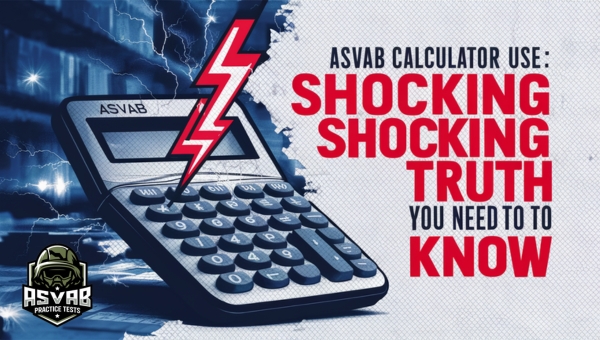AFQT Scores on the ASVAB | What You Need to Know
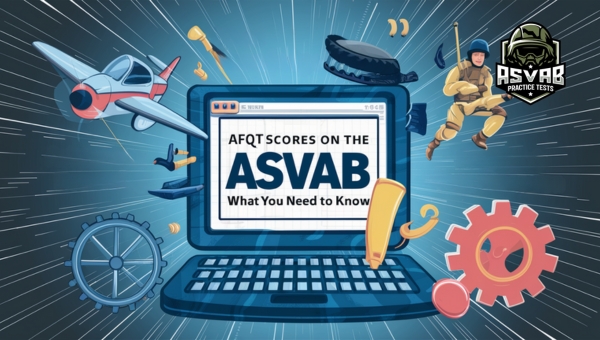
Understanding AFQT Scores on the ASVAB is crucial for anyone considering a military career. In this article, we’ll delve into what AFQT scores are, how they differ from other ASVAB scores, and why they’re so important.
We’ll also break down the score requirements for different military branches and provide tips for improving your scores. Whether you’re just starting your journey or looking to boost your scores, we’ve got you covered. Let’s dive in and unlock the secrets to achieving top-notch AFQT scores on the ASVAB!
An In-Depth Look at the AFQT Scores
When diving into the ASVAB, the AFQT scores hold special importance. Unlike other scores, AFQT scores are used to determine if you qualify for enlistment in the military.

They are derived from four subtests of the ASVAB: Arithmetic Reasoning, Mathematics Knowledge, Word Knowledge, and Paragraph Comprehension.
Understanding these scores will help you see where you stand and what you need to work on. Let’s explore how AFQT scores differ from other ASVAB scores and why they are crucial for your military career.
How Are AFQT Scores Different from Other ASVAB Scores?
AFQT scores are distinct from other ASVAB scores in several ways:
- Purpose: AFQT scores determine your eligibility to enlist in the military, while other ASVAB scores are used for job placement within the military.
- Composition: The AFQT score is calculated using only four subtests: Arithmetic Reasoning (AR), Mathematics Knowledge (MK), Word Knowledge (WK), and Paragraph Comprehension (PC).
- Scoring Method: AFQT scores are reported as percentiles between 1 and 99, indicating how you performed compared to a reference group of test-takers. Other ASVAB scores are typically composite scores used to qualify for specific military jobs.
Why Is the AFQT Score Important for Military Careers?
The importance of AFQT scores cannot be overstated. Here’s why:
- Eligibility: Your AFQT score is the primary factor in determining if you can enlist in any branch of the military. Each branch has its minimum score requirement.
- Opportunities: Higher AFQT scores can open doors to more job opportunities within the military. Certain specialized roles demand higher scores.
- Retention: Maintaining a good AFQT score is often essential for career advancement and retention within the military.
Understanding and focusing on your AFQT score can set the foundation for a successful military career.
Also Read: Navy ASVAB Practice Test: Ace Your Exam with Confidence
AFQT Score Requirements by Branch
Understanding the AFQT score requirements for different military branches is crucial for anyone aspiring to join the armed forces. Each branch has its unique standards, which determine eligibility for various roles. Let’s delve into the specifics of the Army, Navy, Air Force, and Marine Corps.
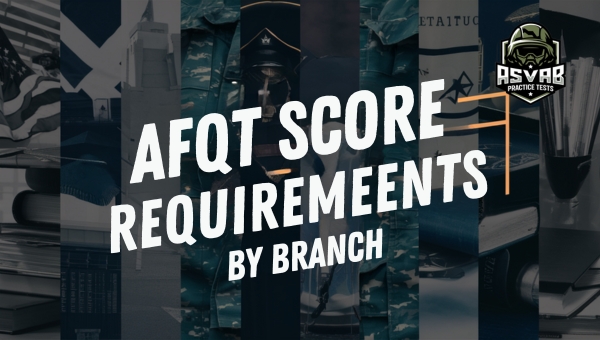
Army AFQT Score Requirements
To join the Army, meeting the AFQT score requirements is essential. The minimum AFQT score for enlistment in the Army is 31.
However, this can vary depending on the educational background of the applicant:
- High School Diploma Holders: Must have a minimum AFQT score of 31.
- GED Holders: Must score at least 50 on the AFQT.
For certain specialized roles and programs within the Army, higher scores may be required. It’s important to prepare thoroughly and aim for a score that not only meets but exceeds the minimum requirements to increase the chances of qualifying for desired positions.
Navy AFQT Score Requirements
Joining the Navy also requires meeting specific AFQT score thresholds. The minimum score needed to enlist varies based on educational qualifications:
- High School Diploma Holders: Must have a minimum AFQT score of 35.
- GED Holders: Must score at least 50 on the AFQT.
The Navy places a strong emphasis on technical and mechanical skills, so higher scores can be advantageous for candidates interested in technical roles or advanced training programs. Preparing well for the ASVAB is key to achieving a competitive score.
Air Force AFQT Score Requirements
The Air Force is known for its stringent AFQT score requirements, reflecting its emphasis on technical expertise and aptitude.
Here are the minimum scores needed for enlistment:
- High School Diploma Holders: Must have a minimum AFQT score of 36.
- GED Holders: Must score at least 65 on the AFQT.
Higher scores can open up opportunities for more specialized roles within the Air Force, such as those in aviation and technical fields. It’s advisable to focus on areas like arithmetic reasoning and mathematics knowledge to boost your AFQT score.
Marine Corps AFQT Score Requirements
The Marine Corps has specific AFQT score requirements that applicants must meet to be eligible for enlistment.
The minimum score requirements are as follows:
- High School Diploma Holders: Must have a minimum AFQT score of 32.
- GED Holders: Must score at least 50 on the AFQT.
Scoring higher than the minimum can improve an applicant’s chances of qualifying for more selective roles and training programs. The Marine Corps values physical fitness and mental toughness, so being well-prepared for the ASVAB is crucial.
Also Read: Marine Corps MOS Codes | A Complete Guide
What Are The Required Minimum AFQT Scores for Every Military Branch?
When considering a military career, understanding the minimum AFQT scores required for each branch is crucial.
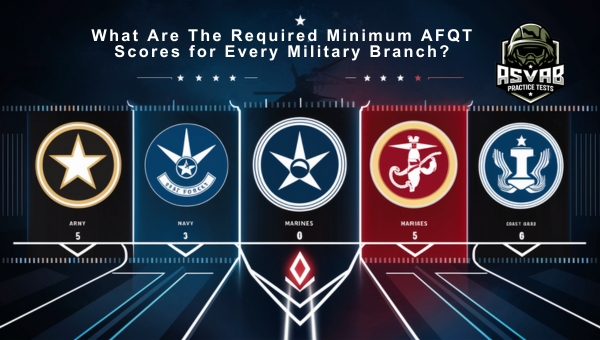
The Armed Forces Qualification Test (AFQT) score is a composite score derived from four sections of the ASVAB: Arithmetic Reasoning, Mathematics Knowledge, Paragraph Comprehension, and Word Knowledge. This score is key to determining eligibility for enlistment in various branches of the military.
Here are the minimum AFQT scores required for each branch:
Army
- Minimum AFQT Score: 31
- The Army is often seen as the most accessible branch in terms of AFQT score requirements. However, higher scores can open doors to more specialized roles and training programs.
Navy
- Minimum AFQT Score: 35
- The Navy has slightly higher AFQT score requirements than the Army. This score ensures that recruits have a solid foundation in basic skills and knowledge necessary for naval operations.
Air Force
- Minimum AFQT Score: 36
- The Air Force demands a higher AFQT score, reflecting the technical and specialized nature of many Air Force roles. A higher score may also be required for certain technical positions.
Marine Corps
- Minimum AFQT Score: 32
- The Marine Corps requires an AFQT score that is slightly higher than the Army’s. Recruits with higher scores may qualify for more advanced training and leadership programs.
Coast Guard
- Minimum AFQT Score: 40
- The Coast Guard has the highest minimum AFQT score requirement among all branches. This reflects the high level of skill and knowledge needed for Coast Guard operations, which often involve complex tasks and critical decision-making.
National Guard
- Minimum AFQT Score: 31
- Similar to the Army, the National Guard requires a minimum AFQT score of 31. This score allows for flexibility in recruiting while ensuring basic competency in essential areas.
It’s important to note that while these are the minimum required scores, achieving a higher AFQT score can significantly enhance your opportunities within each branch.
Higher scores can lead to eligibility for more specialized roles, advanced training programs, and leadership positions. Therefore, aiming for a score well above the minimum can be highly beneficial for your military career.
A Chart Of AFQT Calculated
The Armed Forces Qualification Test (AFQT) scores are a crucial component of the ASVAB (Armed Services Vocational Aptitude Battery). Understanding how these scores are calculated is essential for anyone looking to join the military.
The AFQT score is derived from four specific subtests within the ASVAB, and it plays a key role in determining eligibility for enlistment. Here’s a detailed look at the calculation process:
Subtests Involved in AFQT Calculation
The AFQT score is calculated using the following four subtests:
- Arithmetic Reasoning (AR)
- Mathematics Knowledge (MK)
- Paragraph Comprehension (PC)
- Word Knowledge (WK)
These subtests are designed to measure basic math and verbal skills.
Step-by-Step Calculation Process
- Raw Scores to Standard Scores:
- Each of the four subtests initially provides a raw score. This raw score is then converted into a standard score. The standard score adjusts for the difficulty level of the specific test version taken.
- Combining Verbal Scores:
- The Word Knowledge (WK) and Paragraph Comprehension (PC) scores are combined to generate the Verbal Expression (VE) score. This is done by adding the WK and PC standard scores together.
- For example: If WK = 50 and PC = 45, then VE = 50 + 45 = 95.
- VE Score to AFQT Score:
- The VE score is then doubled.
- Using our previous example: VE = 95, so double it to get 190.
- Adding Math Scores:
- The standard scores for Arithmetic Reasoning (AR) and Mathematics Knowledge (MK) are added to the doubled VE score.
- For instance, if AR = 60 and MK = 55, then the total is VE (doubled) + AR + MK = 190 + 60 + 55 = 305.
- Converting to Percentiles:
- The combined score (in our example, 305) is converted into a percentile score. This percentile score represents how a test-taker’s performance compares to a nationally representative sample of 18- to 23-year-olds.
- For example, a score of 305 might correspond to the 70th percentile, meaning the test-taker performed better than 70% of the sample group.
Example Chart of AFQT Calculations
To provide clarity, here is a simplified example chart:
| Subtest | Standard Score | Example Calculation |
|---|---|---|
| Word Knowledge (WK) | 50 | |
| Paragraph Comprehension (PC) | 45 | |
| Verbal Expression (VE) | 95 | 50 (WK) + 45 (PC) |
| Arithmetic Reasoning (AR) | 60 | |
| Mathematics Knowledge (MK) | 55 | |
| VE Doubled | 190 | 95 x 2 |
| Total Score | 305 | 190 + 60 (AR) + 55 (MK) |
Percentile Conversion
The final step in calculating the AFQT score is converting the total score to a percentile. This percentile score is what determines eligibility for enlistment. Percentile scores range from 1 to 99, indicating the percentage of the reference sample that the test-taker outperformed.
Understanding how AFQT scores are calculated can help prospective military members better prepare for the ASVAB. By focusing on improving scores in the critical subtests of Arithmetic Reasoning, Mathematics Knowledge, Paragraph Comprehension, and Word Knowledge, applicants can enhance their overall AFQT score, thereby increasing their chances of qualifying for their desired branch and role within the military.
Preparing for the ASVAB and Improving AFQT Scores
Getting ready for the ASVAB and aiming to improve your AFQT scores can seem like a big task. But don’t worry; with the right strategies and resources, you can do it successfully. Let’s dive into some proven ways to boost your performance and feel confident on test day.
Study Strategies for High AFQT Scores
To achieve high AFQT scores, you need effective study techniques. Here are some methods that can help:
- Set a Study Schedule: Consistency is key. Create a study plan that allocates specific times for ASVAB preparation each day.
- Focus on Weak Areas: Identify the subjects where you need the most improvement and dedicate extra time to them.
- Use Quality Study Materials: Invest in reputable ASVAB study guides and textbooks that provide comprehensive coverage of the test content.
- Break Down Information: Study in chunks to avoid overwhelming yourself. This method helps in better retention of information.
- Join Study Groups: Collaborate with others to prepare for the ASVAB and share knowledge and study tips.
Practice Tests and Resources
Practice tests are crucial for improving your AFQT scores. They help you understand the test format and identify areas for improvement.
Here’s how to make the most of them:
- Take Full-Length Practice Tests: Simulate test conditions by taking full-length practice exams. This helps build stamina and time management skills.
- Review Incorrect Answers: After each practice test, go over the questions you got wrong to understand your mistakes.
- Use Online Resources: Websites like Khan Academy and ASVAB practice test sites offer free resources and practice questions.
- Enroll in Prep Courses: Consider joining ASVAB prep courses offered online or in-person for structured learning and expert guidance.
- Access Library Resources: Many libraries provide ASVAB study materials and practice tests that you can use for free.
Tips for Test Day
Staying calm and focused during the exam is essential. Here are some strategies to help you perform your best:
- Get a Good Night’s Sleep: Ensure you rest well the night before the test to stay alert and focused.
- Eat a Healthy Breakfast: A nutritious meal can help maintain your energy levels throughout the exam.
- Arrive Early: Plan to arrive at the test center early to avoid any last-minute stress and settle in comfortably.
- Stay Positive: Keep a positive mindset and remind yourself that you’re prepared.
- Manage Your Time: Keep an eye on the clock and pace yourself. Don’t spend too much time on any one question.
- Read Instructions Carefully: Make sure you understand each question and follow the instructions before answering.
- Take Deep Breaths: If you feel anxious, take a few deep breaths to calm your nerves.
By following these strategies and using available resources, you can enhance your ASVAB preparation and significantly improve your AFQT scores. Good luck!
Conclusion
Understanding AFQT scores on the ASVAB is crucial for anyone aspiring to join the military. These scores determine eligibility for different branches and specific roles within those branches. Knowing the requirements and preparing effectively can make a significant difference in your military career opportunities.
By focusing on study strategies, utilizing practice tests, and following tips for test day, you can improve your AFQT scores and enhance your chances of success. If you found this information helpful, be sure to explore more insightful articles on our website. Your journey to a successful military career starts here!
